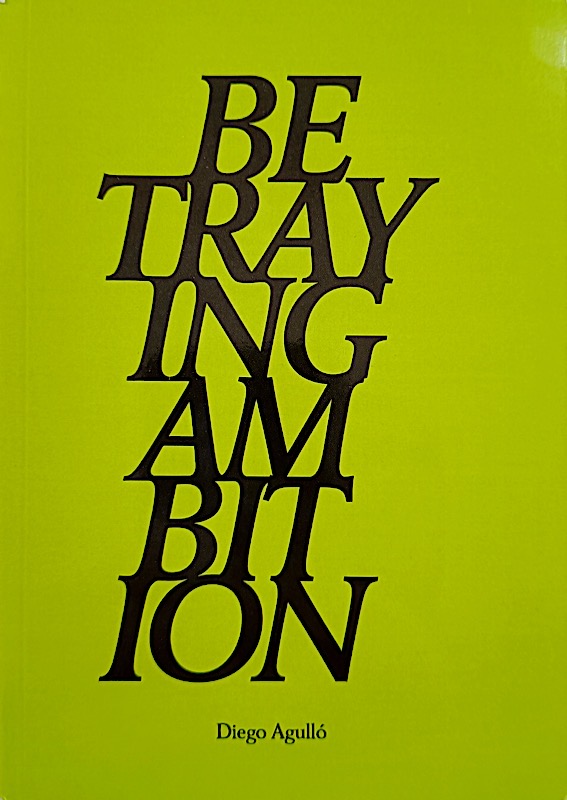Betraying Ambition
Edited by Alice Heyward
€10,00
In stock (can be backordered)**stock child *
The premise of this book is that we are made to believe in ambition because ambition is something good. There is a mantra that tells us “be ambitious”, but, who dares to dissent from it? What if ambition would have been politicized and ideologized? The reason for writing this book is not to clarify what ambition actually means, but to unpack the ethical implications behind its different meanings.
82 pages
Paperback, 10.5x14.8 cm
English
Circadian Books, 1st edition 2017
ISBN 9780956956927
Paperback, 10.5x14.8 cm
English
Circadian Books, 1st edition 2017
ISBN 9780956956927




